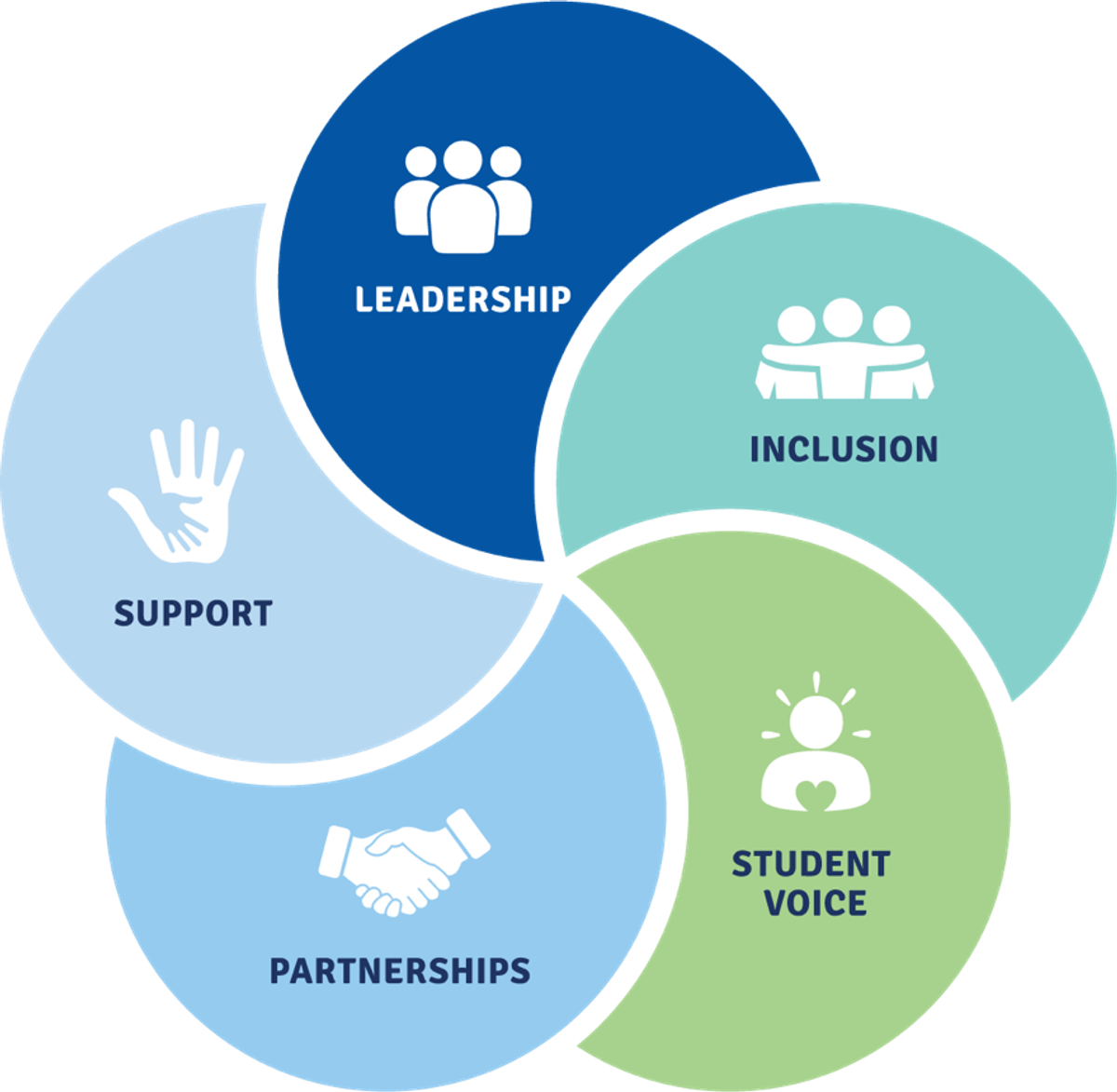Mental Health & Wellbeing Student/Parent Support
Articles, Videos & Resources

Mental Health & Wellbeing Student/Parent Support
Articles, Videos & Resources
Heidi Rogers has created a new workshop - Finding Self Compassion In A Critical World which focuses on why self-compassion reduces suffering in life, and how to begin practicing it daily. Heidi created the training because a lot of parents she sees in the clinic are super hard on themselves and they suffer unnecessarily for it. If you think this is something of value please register --> heidilinks.com/sc-s
As a parent you want your child to be happy and well and to enjoy everything that school offers.
Parents have a significant role to play in laying the foundation for their child’s wellbeing from their earliest years. When your child feels connected to their family, peers and teachers they feel safe and secure and know they’ll be supported throughout their learning journey.
Safe and trusting relationships create a positive learning environment where wellbeing can flourish.
The following website has lots of topics, resources, and strategies to support parents
https://studentwellbeinghub.edu.au/parents/
The Australian Student Wellbeing Framework supports Australian schools to provide every student with the strongest foundation possible for them to reach their aspirations in learning and in life.
The vision of the Framework is that Australian schools are learning communities that promote student wellbeing, safety and positive relationships so that students can reach their full potential.
The Framework is based on evidence that demonstrates the strong association between safety, wellbeing and learning.


How much social connection we seek out varies from one person to another, but one thing’s for sure – as humans, we share a fundamental need to interact with and feel connected to others.
“We are social creatures by nature,” says Relationships Australia National Executive Officer, Nick Tebbey. “That feeling of belonging and being connected is really important for our wellbeing.”
Research backs that up, with a 2017 study finding that social connectedness and mental health are not only inextricably linked, it tends to be connectedness that promotes good mental health rather than the other way around.
“On the other hand,” says Tebbey, “we know that feeling isolated and lonely has a significant impact on our mental and physical health.”
The many faces of connection
What it takes to feel connected can be different for everyone.
“Connection doesn’t look the same for all of us and that’s actually a real positive,” says Tebbey. “It means we’re able to connect – and feel connected – in so many different ways, regardless of our circumstances.”
So, while some kinds of connectedness revolve around physically spending time with like-minded people or doing something unifying – such as being part of a sports team or a book club – others are far less organised.
“Sometimes all it takes is making the effort to say hello to a neighbour,” says Tebbey. “Even small acts like that foster a genuine sense of connection.”
A study of Relationships Australia’s 2019 Neighbour Day – an annual campaign that encourages people to connect with others in their community – proved exactly that. Those who made the effort to do something neighbourly experienced an increased sense of belonging.
“It doesn’t have to be your next-door neighbour or neighbourhood community either,” explains Tebbey. “Communities exist in many different forms, including those you belong to online.”
And don't forget how nice it can be to receive something in the post. Letter writing may be a lost art but there's something really lovely about knowing someone has taken the time to put pen to paper just for you. Our premier partner Australia Post have launched a special release stamp set to encourage people to stay connected. Learn more here.
Sometimes you don’t even need anything tangible or actual interaction with others to feel connected.
Starting a conversation
If you are experiencing loneliness or struggling to feel a real sense of connection, Tebbey suggests speaking up or reaching out.
“Surveys we’ve conducted at Relationships Australia indicate that most of us are quite capable of recognising when we’re feeling isolated or lonely. However, we’re less well equipped to understand why we’re feeling like that, and, importantly, what we can do about it.
“Talking to people you’re close to about how you’re feeling and asking them for help – if you feel comfortable – can be a good starting point. It may even help you identify larger issues that you need to seek support around in order to feel more connected.
“And if you don’t have someone close to talk to or find that it doesn’t help, reach out to a support service like Beyond Blue.”
The Beyond Blue online forums are a great way to connect with people online in a safe and anonymous environment. Discussion topics cover anxiety, depression, suicide, and a range of other life issues. Anyone in Australia can participate in discussions, connect with others, and share their experiences with our community.
If you need assistance visit Beyond Blue’s support services. Our mental health professionals are available 24/7 on: 1300 22 4636. Click here for a web chat (3pm-12am AEST). Alternatively, contact us via email (responses within 24 hours).
For immediate support call Lifeline on 13 11 14 and in an emergency, always call triple zero (000).